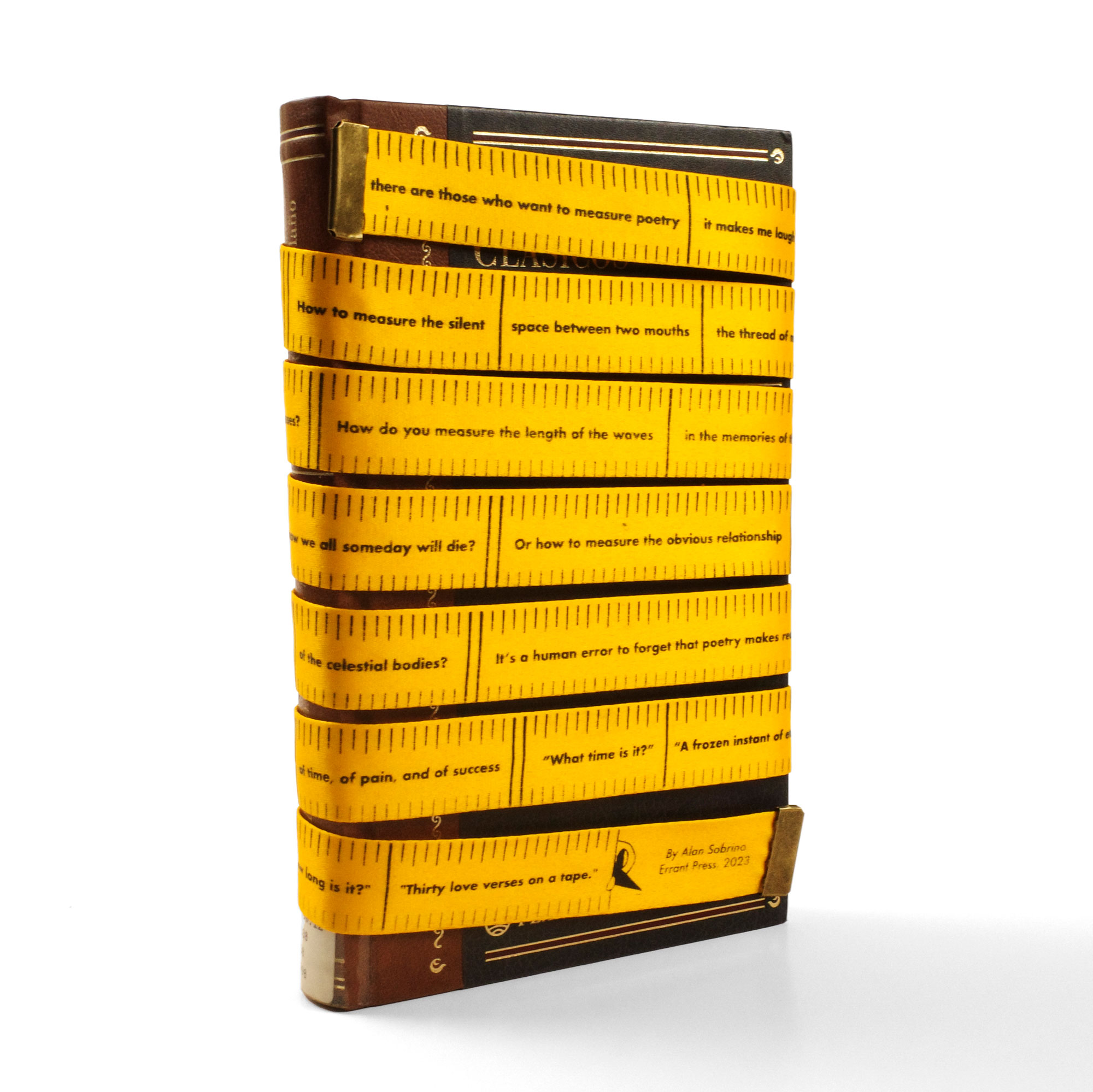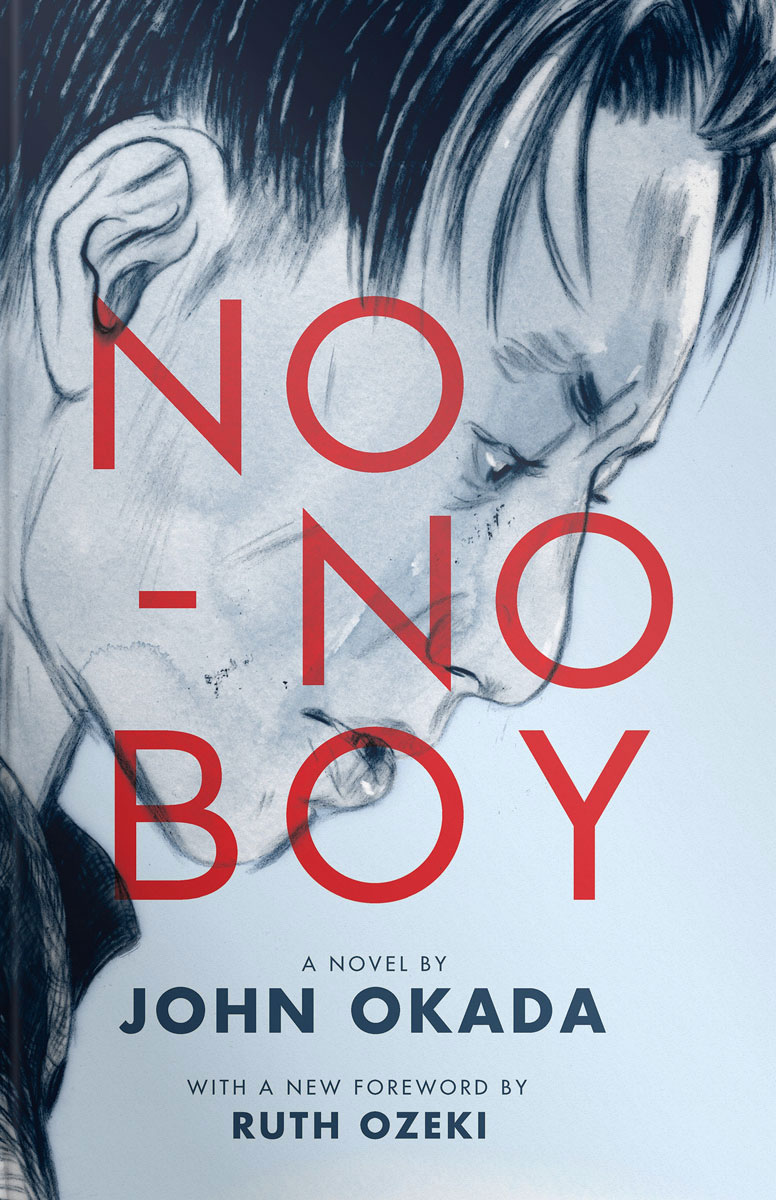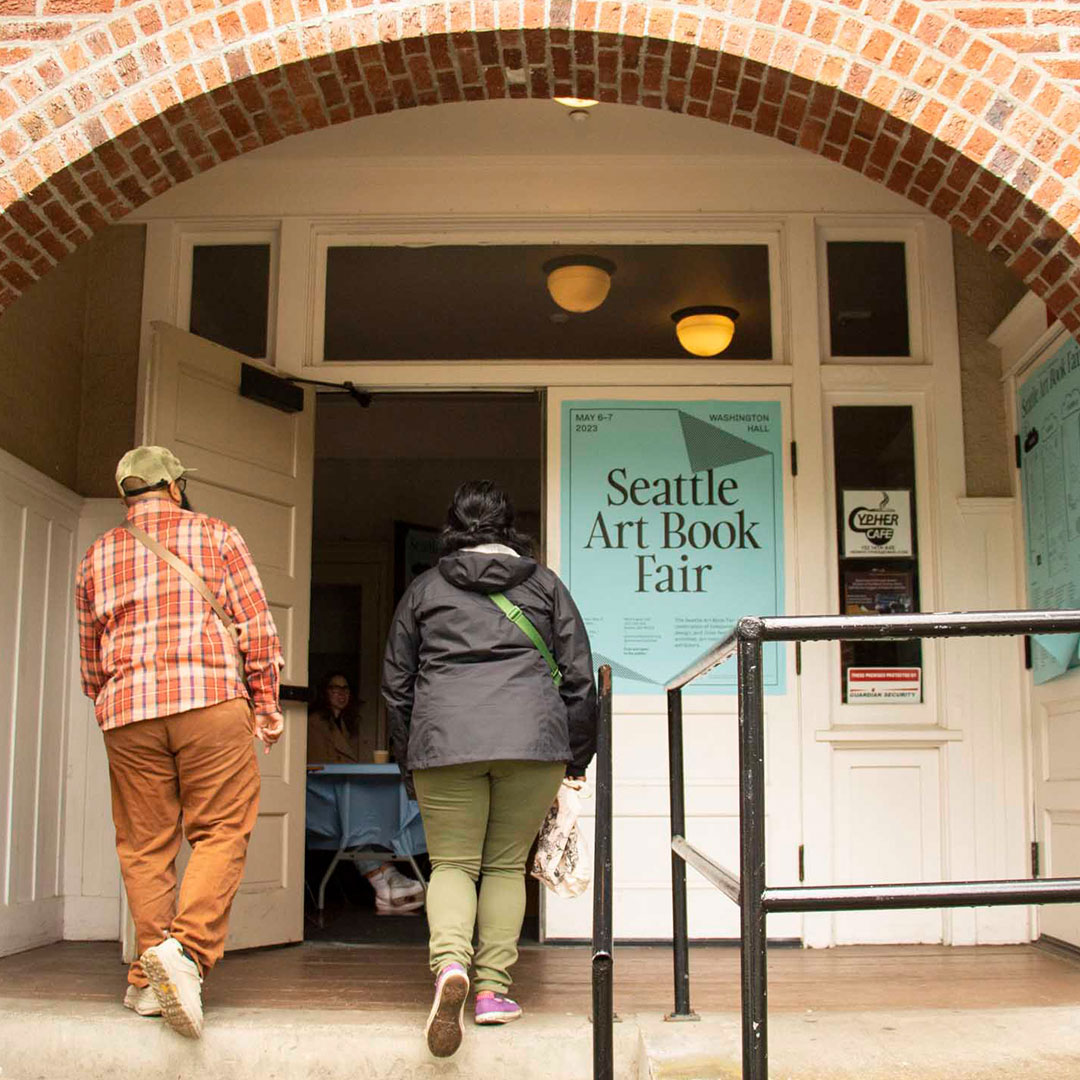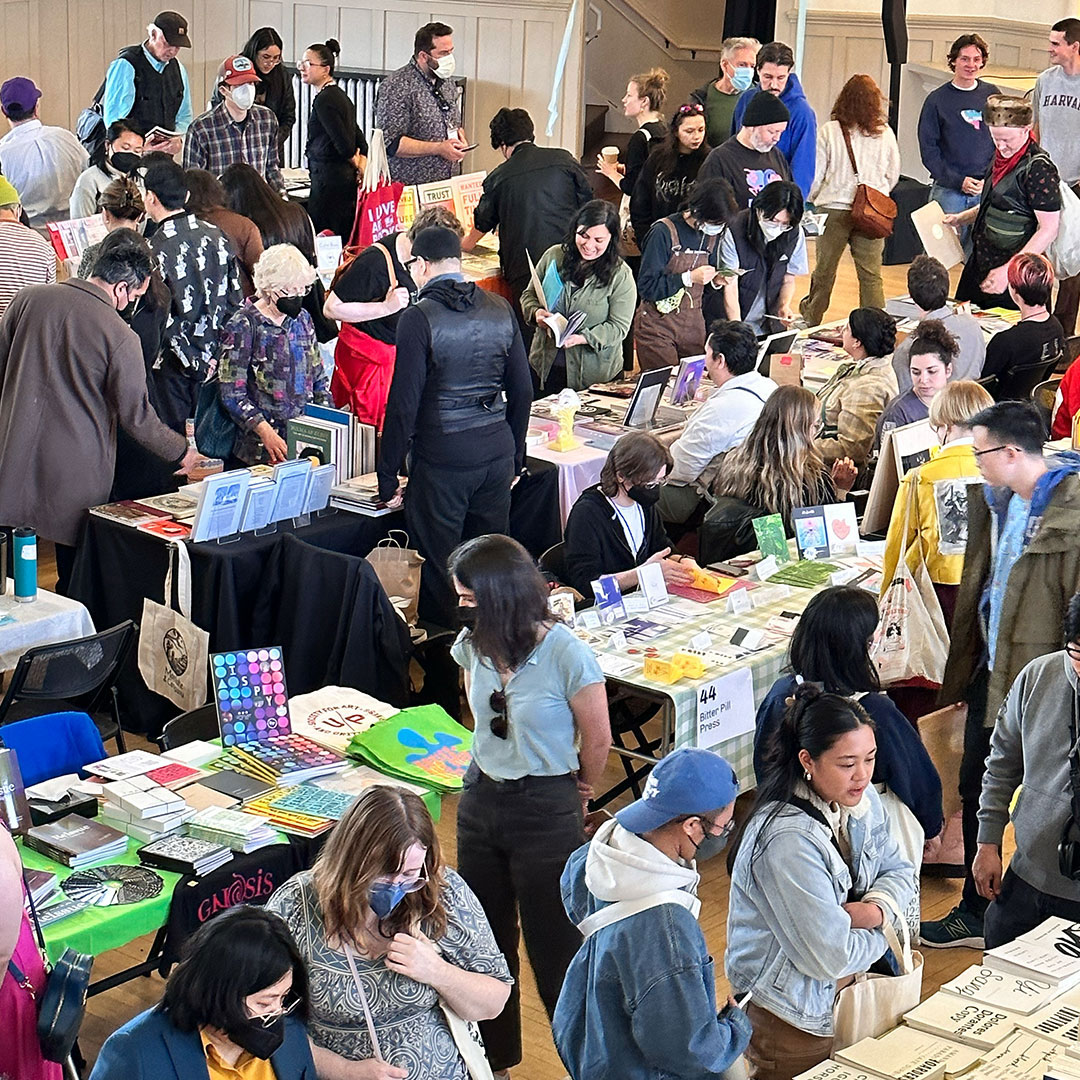Art under cover Art under cover Art under cover
In a city known for its literature, Tom Eykemans and Jayme Yen created a festival that celebrates the beauty of books.
By Shin Yu Pai | April 30, 2024

In 2019, two Seattleites with UW ties, Tom Eykemans, ’02, and former artist-in-residence Jayme Yen, began dreaming of a celebration of books and zines and art. But it took a few years for their vision to become the full-fledged annual festival known as the Seattle Art Book Fair.
The pair imagined a world-class, weekend-long event that could leverage Seattle’s status as a UNESCO City of Literature and its strong book and publishing culture. Disrupted by the pandemic in 2020, Eykemans and Yen refined their plan for gathering people around books and started with informal “bookluck” get-togethers over picnic tables and book exchanges. In 2023, the first official in-person Seattle Art Book Fair drew 65 exhibitors and more than 2,000 people eager to celebrate book design, independent publishing and works of art in the form of books.

Eykemans is a former book designer for UW Press and known for his cover redesign of John Okada’s iconic 1957 novel “No-No Boy.” Eykemans also designed the cover for “Homebase,” Professor Shawn Wong’s first novel.
The UW alum met Yen when she worked at The Henry Art Gallery designing publications for the museum. They bonded over shared interests in design and alternative publishing outlets. Eykemans and Yen had both been going to art book fairs in cities like New York, Los Angeles and San Francisco. “Everywhere we went, people asked why Seattle didn’t have an art book fair,” says Eykemans. “It shed a light on this overlooked part of publishing. Jayme and I realized that we could start one ourselves.”
Seattle could be a strong home for an art book fair, with its culture of independent publishing and the popularity of the annual Short Run Comics Festival and Photographic Center Northwest’s summer book and zine fair, they say. “There are also poetry and literature festivals,” says Eykemans. “But what we envision isn’t just one of those things. It might have some comics and photography, but we’re excited to think about the book and publication as an object. Something that people conceive and produce that’s more thoughtful than print-on-demand.”
There’s a distinction between an art book and an artist’s book, Yen adds. “It’s similar kind of work,” she says. “The artist book community focuses more on one-of-a-kind, handcrafted, artistically conceived book objects. What we’re thinking about still has those kinds of qualities, but is more accessible, affordable and easier to distribute. It’s thinking about the book as a form of art. And what can be done with it in terms of materials and shapes, not just the content.”
As lead organizers of the Seattle event, Eykemans and Yen curate a balance of local and regional artists, plus national and international exhibitors. They review applications to the book fair and coordinate the planning of the festival while working with a team of volunteers with expertise in fundraising, marketing, public relations and social media.
- Photo courtesy of Seattle Art Book Fair
- Photo courtesy of Seattle Art Book Fair
Last year, the pair worked with artist Colleen Louise Barry to design an interactive installation for the Washington Hall stage. Barry had an ongoing series of sculptural works called Soft Books—enormous hand-bound books composed of photography and illustration bound with colorful, unusual material. “We worked with Colleen to make three big podiums out of plywood each of which displayed a Soft Book,” Eykemans says. “People could browse the books on stage and become part of her sculpture.”
This year, Eykemans and Yen are working with risograph printer ANEMONE and Alex Barsky from Zinehug to create a climate crisis reading room and community altar: a browsable library of publications related to climate change and environmental crises.
This year’s public programs, which were suggested by the exhibitors, include a talk on “What makes a book a book?” by the founder of Errant Press and a presentation by Sarah Maker of local press Editions on “The Six Elements of Artists’ Books.”
Taha Ebrahimi, who wrote “Street Trees of Seattle,” will offer a guided street tree walk of Cherry Hill, the neighborhood around Washington Hall. The book fair will also offer a Rainy Day Book Exchange put together by Raziah Ahmad, ’20, where visitors can leave a book and take a book. This year, Sasquatch Books is donating books. “It’s a way for people to participate, regardless of funds,” says Eykemans who emphasizes that the art book fair is free to the public and close to public transportation.
Seattle Art Book Fair takes place May 11-12 at Washington Hall. The event is free and open to the public.

